
Addo Elephant National Park: A Sanctuary of Giants
Addo Elephant National Park, located in the Eastern Cape of South Africa, is a haven for wildlife enthusiasts and nature lovers. Established in 1931 to protect the last remaining elephants in the area, the park has grown significantly and now covers over 1,640 square kilometers. It is home to more than 600 elephants, making it one of the best places in the world to see these magnificent creatures in their natural habitat. Beyond elephants, Addo boasts a diverse array of wildlife, including lions, buffalo, black rhinos, and a variety of antelope species. The park also offers unique experiences such as spotting the flightless dung beetle, which is almost exclusively found in Addo. Bird watchers will find over 400 species of birds, making every visit a feast for the eyes. The park is not just about the animals; its landscapes are equally breathtaking. From dense thickets to rolling hills and coastal dunes, Addo's scenery is as varied as its wildlife. Visitors can explore the park through guided game drives, self-drive safaris, or even horseback trails. For those looking for a more immersive experience, there are several accommodation options ranging from luxury lodges to rustic campsites.
Local tips in Addo Elephant National Park
- Best time to visit is during the dry season (June to September) when animals gather around waterholes.
- Book guided game drives in advance, especially during peak tourist season.
- Carry binoculars and a camera with a good zoom to capture the best wildlife moments.
- Wear neutral-colored clothing to blend into the environment and avoid startling the animals.
- Respect park rules and maintain a safe distance from all wildlife.
Addo Elephant National Park: A Sanctuary of Giants
Addo Elephant National Park, located in the Eastern Cape of South Africa, is a haven for wildlife enthusiasts and nature lovers. Established in 1931 to protect the last remaining elephants in the area, the park has grown significantly and now covers over 1,640 square kilometers. It is home to more than 600 elephants, making it one of the best places in the world to see these magnificent creatures in their natural habitat. Beyond elephants, Addo boasts a diverse array of wildlife, including lions, buffalo, black rhinos, and a variety of antelope species. The park also offers unique experiences such as spotting the flightless dung beetle, which is almost exclusively found in Addo. Bird watchers will find over 400 species of birds, making every visit a feast for the eyes. The park is not just about the animals; its landscapes are equally breathtaking. From dense thickets to rolling hills and coastal dunes, Addo's scenery is as varied as its wildlife. Visitors can explore the park through guided game drives, self-drive safaris, or even horseback trails. For those looking for a more immersive experience, there are several accommodation options ranging from luxury lodges to rustic campsites.
When is the best time to go to Addo Elephant National Park?
Iconic landmarks you can’t miss
Addo Elephant Main Camp
Discover the wildlife wonders at Addo Elephant Main Camp, a unique campground nestled in South Africa’s stunning Addo Elephant National Park.
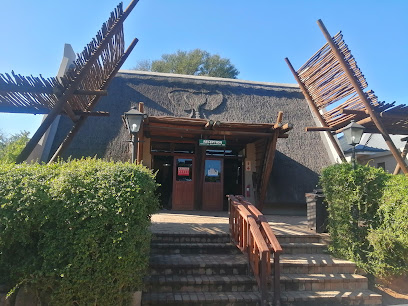
Addo Elephant National Park - South Gate - Mathyolweni Gate
Explore Addo Elephant National Park, a stunning wildlife sanctuary in South Africa, home to the Big Seven and diverse ecosystems for unforgettable nature experiences.
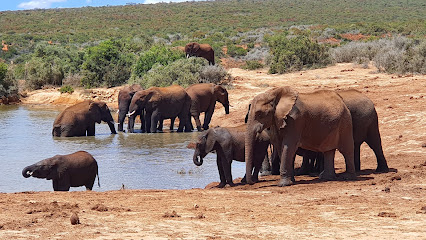
Adrenalin Addo Adventure Park
Experience the thrill of adventure in the beautiful Addo region at Adrenalin Addo Adventure Park, a top attraction for families and thrill-seekers alike.
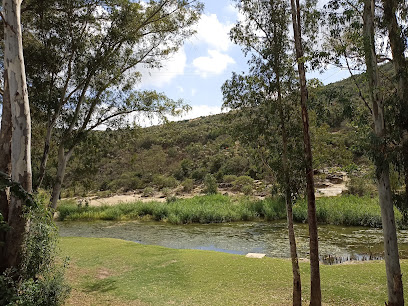
Hapoor Drinking Hole Lookout
Discover the beauty of wildlife at the Hapoor Drinking Hole Lookout in Addo Elephant National Park, a prime destination for nature lovers and adventure seekers.
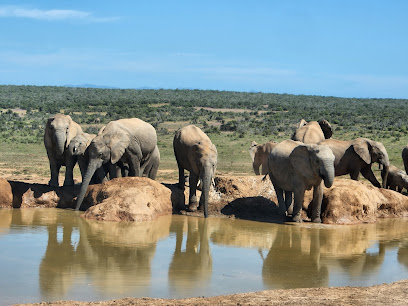
Zuurkop Lookout
Experience breathtaking views of wildlife and landscapes at Zuurkop Lookout in Addo National Park, South Africa's stunning natural treasure.
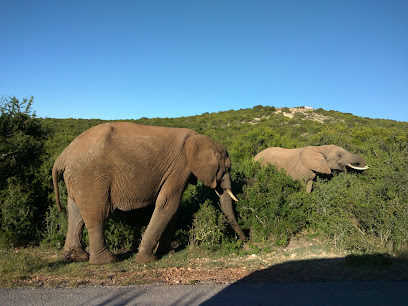
Entrance Addo National Park
Explore the breathtaking landscapes and diverse wildlife of Addo National Park, an unforgettable adventure in South Africa's natural wonders.
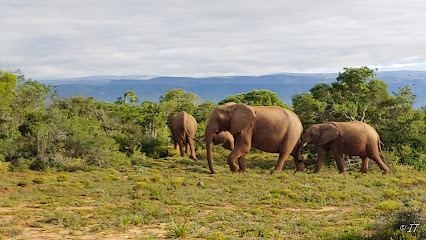
Unmissable attractions to see
Kragga Kamma Game Park
Explore the breathtaking wildlife and stunning landscapes of Kragga Kamma Game Park, a premier nature preserve in Gqeberha, South Africa.
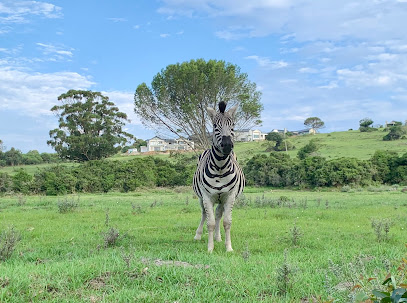
Amakhala Game Reserve
Discover the breathtaking wildlife and immersive safari experiences at Amakhala Game Reserve in South Africa's Eastern Cape.
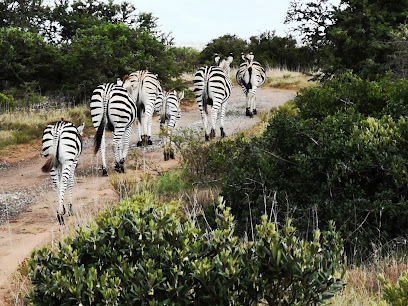
JACK'S Picnic Site
Experience the tranquility of Jack's Picnic Site, a serene escape within Addo Elephant Park, perfect for family picnics and nature lovers alike.
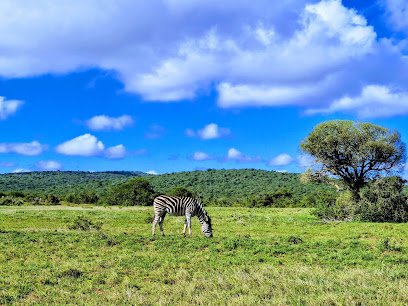
Kwantu Private Game Reserve
Explore Kwantu Private Game Reserve, where breathtaking wildlife encounters and stunning landscapes await in South Africa's Eastern Cape.
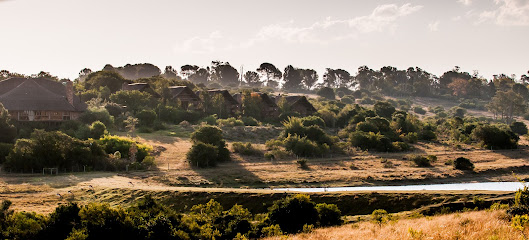
Addo Cattle Baron Grill & Bistro
Experience the culinary delights of South Africa at Addo Cattle Baron Grill & Bistro, where every meal is a feast in the heart of nature.

DONKIN RESERVE, PYRAMID AND LIGHTHOUSE
Discover the charm of Donkin Reserve in Gqeberha, where nature and history converge, revealing stunning landscapes and rich cultural heritage.
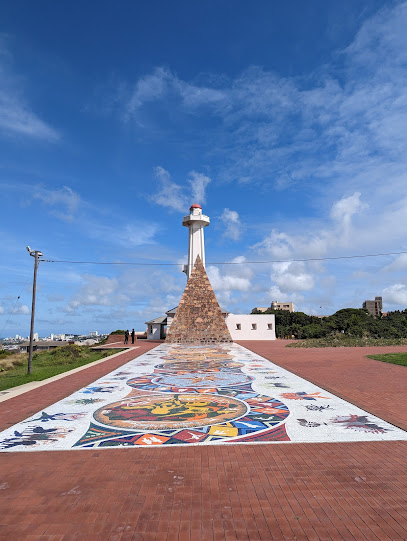
African Dawn Wildlife Sanctuary
Discover the beauty of South Africa's wildlife at African Dawn Wildlife Sanctuary, a serene escape for nature lovers and families alike.
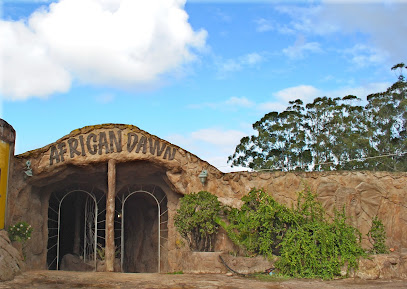
Daniell Cheetah Project
Explore the Daniell Cheetah Project, a wildlife refuge dedicated to the conservation of cheetahs in South Africa, offering unforgettable tours and experiences.
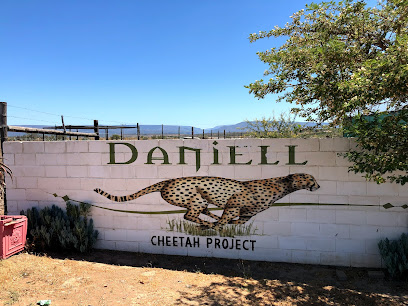
South African Air Force Museum, Port Elizabeth Branch
Discover the rich aviation heritage of South Africa at the South African Air Force Museum in Gqeberha, showcasing a remarkable collection of aircraft and military history.
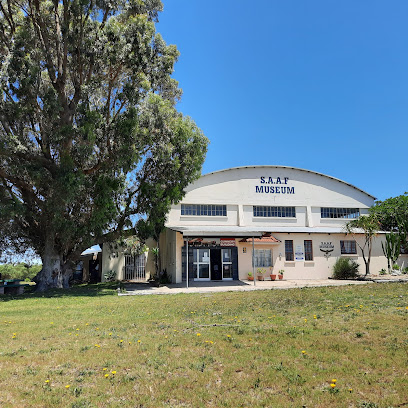
Fort Frederick, Eastern Cape
Explore the historic Fort Frederick in Gqeberha, a fortress that tells the story of South Africa's colonial past with stunning views and rich history.
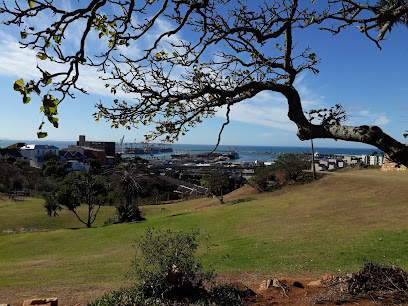
Kuzuko Lodge
Discover the wild beauty of South Africa at Kuzuko Lodge, where luxury meets adventure in a stunning wildlife paradise.
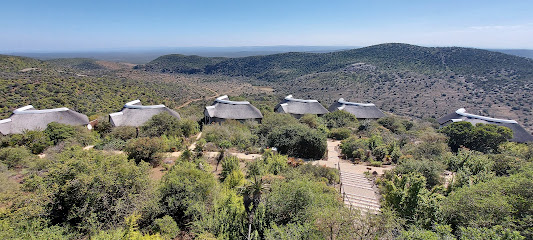
Crisscross Adventures
Experience the thrill of adventure sports, ATV rentals, and guided outdoor tours amidst the breathtaking landscapes of Addo at Crisscross Adventures.
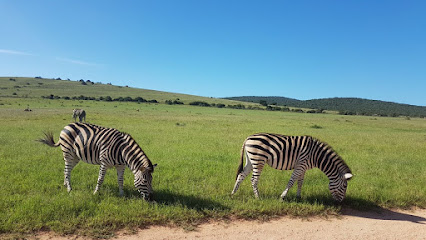
Van Stadens Wild Flower Reserve
Explore the stunning biodiversity and natural beauty of Van Stadens Wild Flower Reserve, a must-visit nature preserve in Gqeberha, South Africa.
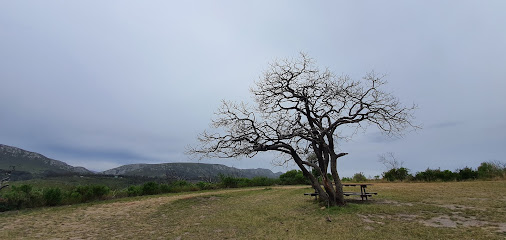
Nyathi Rest Camp
Explore the enchanting Nyathi Rest Camp in Addo Elephant National Park, a haven for wildlife lovers and adventure seekers in South Africa.
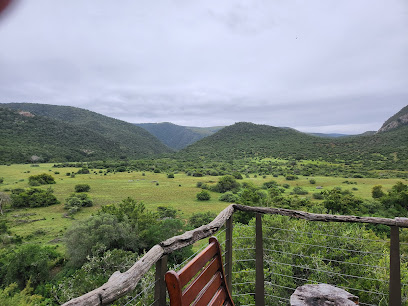
Groendal Nature Reserve
Explore the breathtaking Groendal Nature Reserve in Gqeberha, a nature lover's paradise with diverse wildlife and stunning landscapes for outdoor adventures.
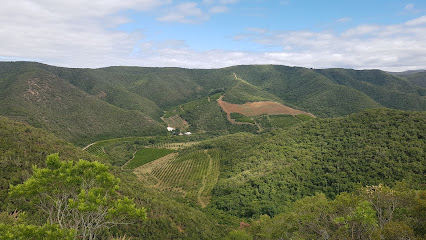
Essential places to dine
Addo Cattle Baron Grill & Bistro
Experience authentic South African cuisine at Cattle Baron Grill & Bistro in Addo Elephant National Park—where nature meets flavor.
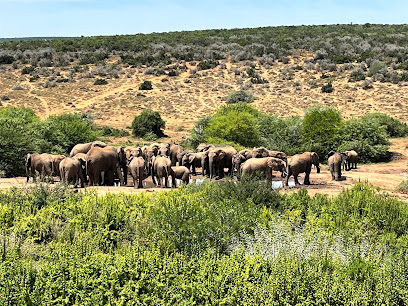
The Orange Elephant Restaurant & Pub - The O.E
Experience delightful local cuisine and vibrant atmosphere at The Orange Elephant Restaurant & Pub in Addo.
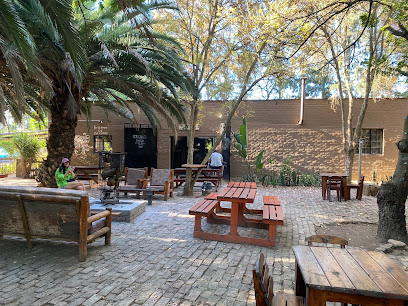
Markets, malls and hidden boutiques
Addo Elephant National Park
Discover the wonders of Addo Elephant National Park, a premier wildlife destination in South Africa, home to magnificent elephants and diverse ecosystems.
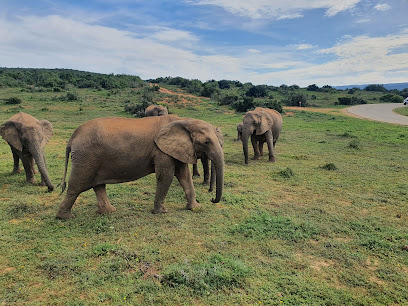
Addo Spar
Discover Addo Spar: A vibrant supermarket showcasing local flavors, fresh produce, and an authentic South African shopping experience.
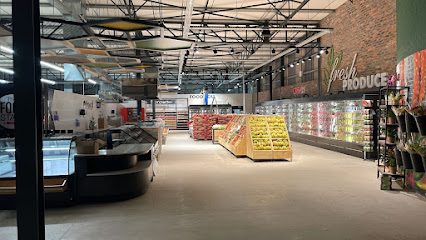
TESKO SUPERMARKET
Experience the convenience of TESKO Supermarket in Addo, where local flavors and essential goods come together for tourists and locals alike.

Ackermans Kirkwood
Discover stylish clothing for all ages at Ackermans Kirkwood, where fashion meets affordability in the heart of Nqweba.

PEP Addo
Discover affordable fashion for the whole family at PEP Addo, your go-to clothing store in Addo, South Africa.

Addo Furniture and Appliances
Explore Addo Furniture and Appliances for quality furnishings and unique home essentials in the charming town of Addo.
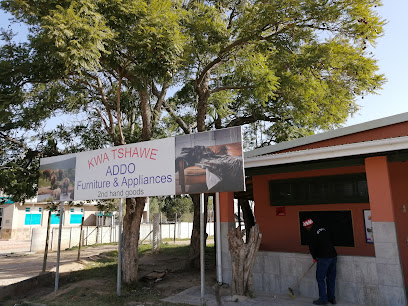
Resq
Discover Resq in Addo: Your go-to grocery store for local flavors, fresh produce, and artisanal goods in the heart of South Africa.

TotalEnergies Addo Elephant National Park
Discover the breathtaking wildlife and stunning landscapes at Addo Elephant National Park, home to the Big Seven and a haven for nature lovers.
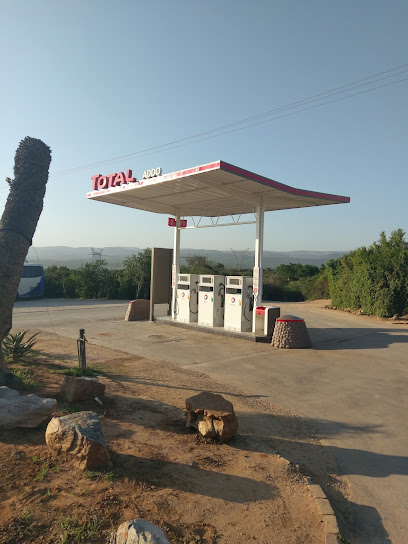
Precision Blindz
Elevate your space with stylish and durable window treatments at Precision Blindz in Addo, where quality meets exceptional service.
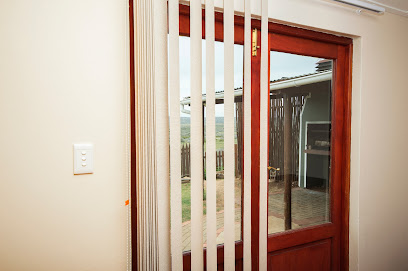
KoZee Cafe Die Winkle
Experience local flavors and a cozy atmosphere at KoZee Cafe Die Winkle in Addo, the perfect stop for travelers seeking refreshment and convenience.
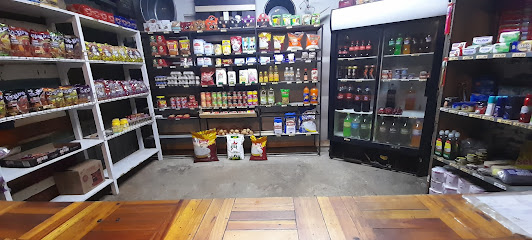
Addo Supermarket and Butchery
Discover the flavors of Addo at the Addo Supermarket and Butchery, where local produce meets quality meats for an authentic shopping experience.
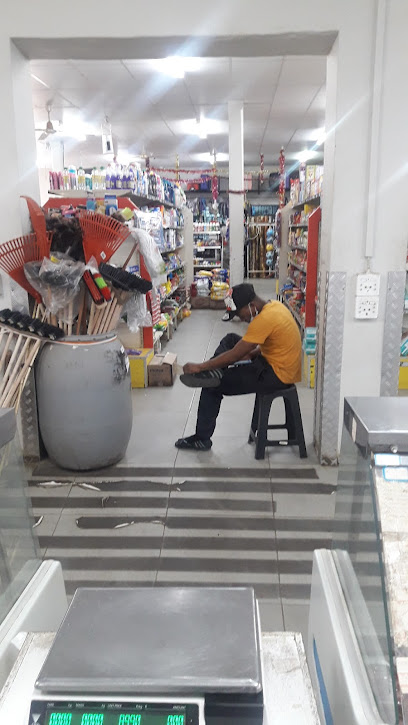
Usave Box Nomathamsaqa
Discover local flavors at Usave Box Nomathamsaqa, your go-to grocery store in Addo, offering fresh produce and authentic South African goods.

The Park's Shop
Discover local flavors and unique souvenirs at The Park's Shop in Addo Elephant National Park, your perfect stop for groceries and gifts.
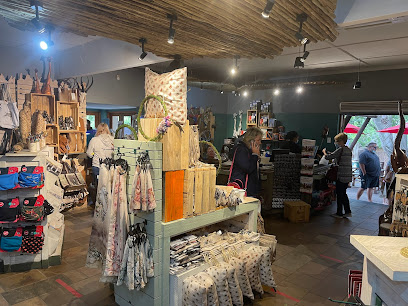
Ackermans Addo Square
Discover the latest fashion trends for women and children at Ackermans Addo Square, a key shopping destination in Addo, South Africa.

Dancey Branding
Discover Dancey Branding in Addo, a premier print shop for all your personalized printing needs during your travels.

Essential bars & hidden hideouts
Africanos Country Estate
Experience the best of dining and accommodation at Africanos Country Estate in Addo, where comfort meets culinary delights in a serene setting.
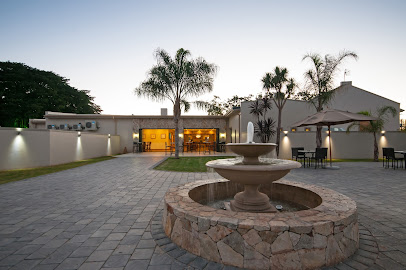
Ekupholeni Cocktail Lounge
Discover the lively Ekupholeni Cocktail Lounge in Ibhayi, offering an extensive cocktail menu and a vibrant atmosphere for all who visit.

Addo Cattle Baron Grill & Bistro
Experience authentic South African cuisine at Addo's Cattle Baron Grill & Bistro, a perfect dining stop within the majestic Addo Elephant National Park.
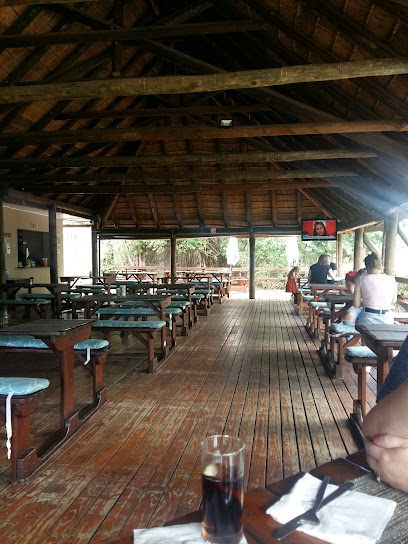
Kronenhoff
Experience the rich flavors of South African cuisine at Kronenhoff, Nqweba's premier dining destination for tourists.
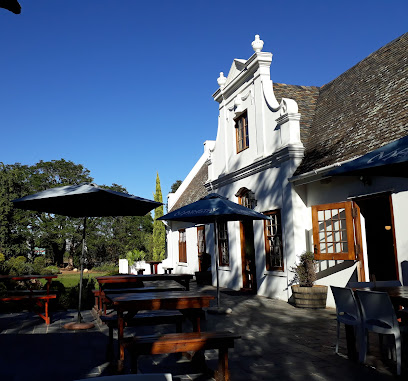
Chameleon Coffee Shop & Restaurant
Discover the delightful flavors of Nqweba at Chameleon Coffee Shop & Restaurant, where local cuisine meets a cozy atmosphere.
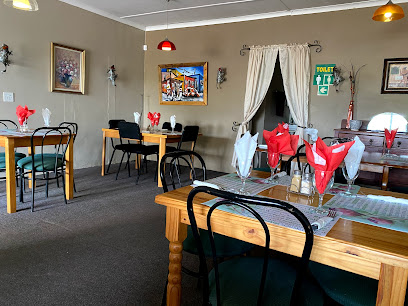
RiverBend Lodge
Discover the perfect blend of luxury and adventure at RiverBend Lodge, your gateway to the enchanting Elephant National Park.

Molo Lolo Restaurant
Discover the taste of South Africa at Molo Lolo Restaurant, where local ingredients meet traditional recipes in a cozy dining atmosphere.
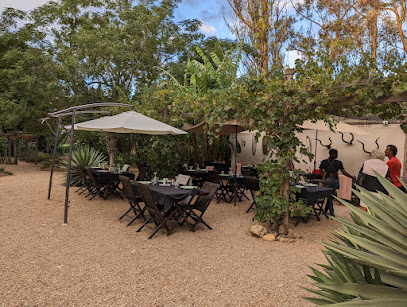
Moonlight Place Kirkwood
Discover the vibrant nightlife of Nqweba at Moonlight Place Kirkwood, where cold drinks and a friendly atmosphere await every traveler.

Innibos Lapa
Experience the vibrant atmosphere of Innibos Lapa, a top pub in Despatch offering local drinks, delicious food, and a lively social scene.
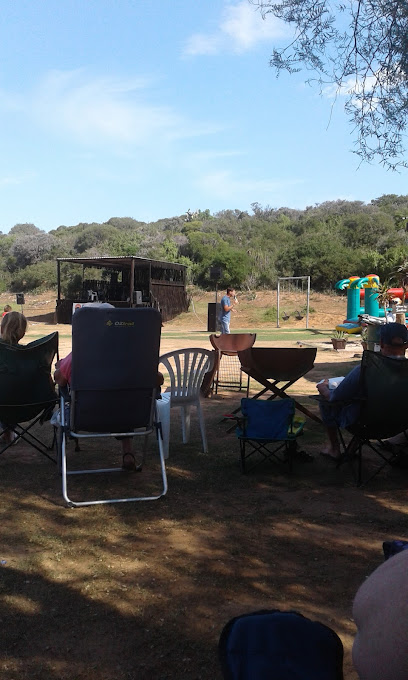
Addo Polo Club
Discover the vibrant atmosphere of the Addo Polo Club, where thrilling polo matches meet a relaxing pub experience in the beautiful Addo region.
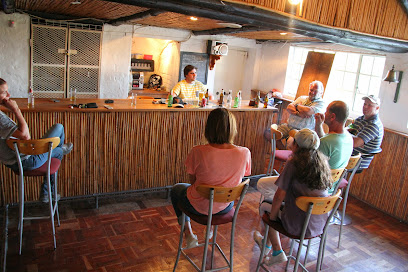
Xesi's Tavern
Experience the local charm and vibrant ambiance at Xesi's Tavern, a must-visit bar in Ibhayi for tourists seeking authentic South African hospitality.
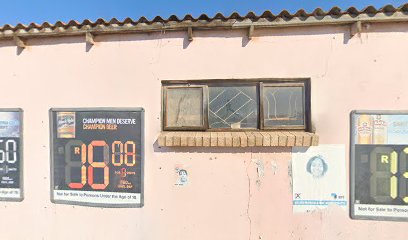
Bietjie van Als
Experience the flavors of South Africa at Bietjie van Als, a charming grill restaurant in Gqeberha's scenic Uitenhage Farms.
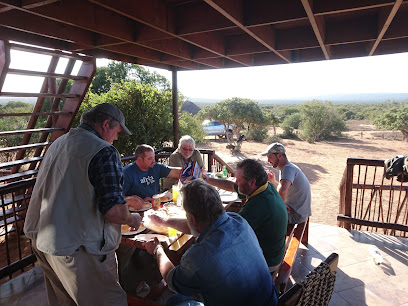
Thandabantu Tarven
Experience the vibrant nightlife at Thandabantu Tarven, a local bar in Ibhayi with great drinks, live music, and a friendly atmosphere.

Austine Sport Bar
Experience the lively atmosphere of Austine Sport Bar in Zwide 4, where sports and camaraderie come alive amidst great drinks and local culture.
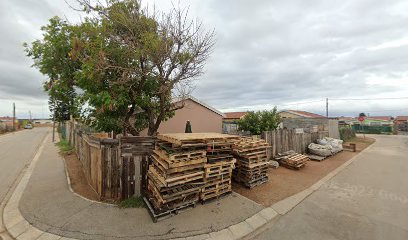
Local Phrases about Addo Elephant National Park
-
- HelloMolo
[moh-loh] - GoodbyeHamba kahle
[hahm-bah kah-leh] - YesEwe
[eh-weh] - NoCha
[chah] - Please/You're welcomeNceda
[n-chay-dah] - Thank youEnkosi
[en-koh-see] - Excuse me/SorryUxolo
[oo-shoh-loh] - How are you?Unjani?
[oon-jah-nee] - Fine. And you?Ndicela
[n-dee-chay-lah] - Do you speak English?Ukhuluma isiNgisi?
[oo-khoo-loo-mah ee-see-ngi-see] - I don't understandAndiqondi
[ahn-dee-kohn-dee]
- HelloMolo
-
- I'd like to see the menu, pleaseNdicela ukubona imenyu, nceda
[n-dee-chay-lah oo-koo-boh-nah ee-mehn-yoo, n-chay-dah] - I don't eat meatAndixwayisi inyama
[ahn-dee-khway-see ee-nyah-mah] - Cheers!Oogyi
[oo-gee] - I would like to pay, pleaseNdicela ukulipa, nceda
[n-dee-chay-lah oo-koo-lee-pah, n-chay-dah]
- I'd like to see the menu, pleaseNdicela ukubona imenyu, nceda
-
- Help!Usizo!
[oo-see-zoh] - Go away!Hamba!
[hahm-bah] - Call the Police!Vula amaphoyisa!
[voo-lah ah-mah-poy-ee-sah] - Call a doctor!Vula udokotela!
[voo-lah oo-doh-koh-teh-lah] - I'm lostNdifile
[n-dee-fee-leh] - I'm illNdinamathela
[n-dee-nah-mah-teh-lah]
- Help!Usizo!
-
- I'd like to buy...Ndicela ukuthenga...
[n-dee-chay-lah oo-koo-ten-gah] - I'm just lookingNdibona kuphela
[n-dee-boh-nah koo-peh-lah] - How much is it?Yimalini?
[yi-mah-lee-nee] - That's too expensiveLokho kudinga okukhulu
[loh-koh koo-ding-gah oh-koo-khoo-loo] - Can you lower the price?Ungakwenza isaphulelo?
[oo-ngah-kwen-zah ee-sah-poo-leh-loh]
- I'd like to buy...Ndicela ukuthenga...
-
- What time is it?Yintoni ixesha?
[yiin-toh-nee ee-keh-shah] - It's one o'clockKusihlanu
[koo-see-hlah-noo] - Half past (10)Isixhenxe
[ee-see-kheh-nheh] - MorningEmini
[eh-mee-nee] - AfternoonEbusuku
[eh-boo-soo-koo] - EveningEmini
[eh-mee-nee] - YesterdayIzolo
[ee-zoh-loh] - TodayNamhlanje
[nahm-hlahn-jeh] - TomorrowKusasa
[koo-sah-sah] - 1Kunye
[koo-nyeh] - 2Kubili
[koo-bee-lee] - 3Kuthathu
[koo-tah-too] - 4Kune
[koo-neh] - 5Kuhlanu
[koo-hlah-noo] - 6Isithupa
[ee-see-thoo-pah] - 7Isikhombisa
[ee-see-khohm-bee-sah] - 8Isishiyagalombili
[ee-see-shee-yah-gah-lohm-bee-lee] - 9Isishiyagalolunye
[ee-see-shee-yah-gah-loh-loo-nyeh] - 10Kumi
[koo-mee]
- What time is it?Yintoni ixesha?
-
- Where's a/the...?Kwaphi i...
[kwah-pee ee] - What's the address?Yintoni iindwendwe?
[yiin-toh-nee een-dwen-dweh] - Can you show me (on the map)?Ungangibonisa (emephu)?
[oo-ngah-ngi-boh-nee-sah eh-meh-poo] - When's the next (bus)?Ixesha laloo (ibhasi)?
[ee-keh-shah lah-loo ee-bha-see] - A ticket (to ....)Itikiti (ku ....)
[ee-tee-kee-tee koo]
- Where's a/the...?Kwaphi i...
History of Addo Elephant National Park
-
Long before Addo Elephant National Park was established, the area was home to the Khoisan people. These indigenous hunter-gatherers and pastoralists made use of the region's rich biodiversity. Evidence of their presence, such as rock art and ancient tools, has been discovered, indicating a deep connection with the land that dates back thousands of years.
-
The arrival of European settlers in the 18th and 19th centuries marked a period of significant upheaval for the region. Colonists began to settle and farm the land, leading to conflicts with the indigenous populations. The introduction of farming practices disrupted the natural habitat, and wildlife, including elephants, began to be seen as pests.
-
In the early 20th century, the burgeoning agricultural industry saw elephants as a threat to crops and livestock. This led to extensive culling efforts, resulting in the near-extinction of the local elephant population. By 1931, only eleven elephants remained in the area, prompting a dire need for intervention to protect these majestic creatures.
-
In response to the alarming decline in elephant numbers, Addo Elephant National Park was established in 1931. Initially covering just 2,270 hectares, the park was created to provide a sanctuary for the remaining elephants. This marked the beginning of concerted conservation efforts, although early challenges included managing human-wildlife conflict and ensuring the park's sustainability.
-
Over the decades, Addo Elephant National Park has undergone significant expansion. Today, it spans approximately 1,640 square kilometers and includes a variety of biomes, from dense thicket to coastal dunes. The park is now home to a diverse array of species, including the Big Five—elephants, lions, rhinos, buffalo, and leopards—as well as numerous bird species and other wildlife.
-
Addo Elephant National Park is not only a haven for wildlife but also a repository of cultural heritage. The park's landscape bears witness to centuries of human interaction, from ancient Khoisan settlements to colonial farms. Various initiatives have been undertaken to preserve and interpret these cultural resources, offering visitors a glimpse into the rich history intertwined with the park's natural beauty.
Addo Elephant National Park Essentials
-
Addo Elephant National Park is located in the Eastern Cape province of South Africa. The nearest major city is Port Elizabeth, which is approximately 72 kilometers away. The most convenient way to get to Addo is by flying into Port Elizabeth International Airport (PLZ) and then renting a car or taking a shuttle service to the park. The drive from Port Elizabeth to the park takes about 1 hour. Alternatively, you can hire a private transfer or join an organized tour that includes transportation.
-
Within Addo Elephant National Park, the best way to explore is by car. You can either use your own vehicle or rent one from Port Elizabeth. There are also guided game drives available, which can be booked through the park's main camp or private tour operators. For those who prefer not to drive, the park offers hop-on-hop-off safari vehicles that operate on scheduled routes. Note that some roads within the park are only accessible by 4x4 vehicles.
-
The official currency in South Africa is the South African Rand (ZAR). Credit and debit cards are widely accepted in the park’s main camp, restaurants, and shops. However, it is advisable to carry some cash for smaller purchases and tips. ATMs are available in the main camp area, but it’s a good idea to withdraw cash beforehand in Port Elizabeth to ensure you have sufficient funds.
-
Addo Elephant National Park is generally safe for tourists, but standard safety precautions should always be taken. Keep your vehicle doors locked and windows closed when driving through the park. Avoid leaving valuables in plain sight in your car. Be cautious in crowded areas and always be aware of your surroundings. Some areas in Port Elizabeth have higher crime rates, so avoid walking alone at night and stick to well-lit areas.
-
In case of emergency within the park, contact the park's emergency number provided at the entrance gate and in your accommodation. Medical facilities are available at the main camp, and more comprehensive medical services can be found in Port Elizabeth. For emergencies outside the park, dial 10111 for police assistance and 10177 for ambulance services. It is highly recommended to have travel insurance that covers medical emergencies and evacuation.
-
Fashion: Do wear comfortable, neutral-colored clothing to blend in with the environment and avoid attracting insects. Don't wear bright colors or flashy accessories that could disturb wildlife. Religion: Do respect local customs and practices. South Africa is a multicultural country, so be courteous and considerate. Public Transport: Do use reputable taxi services or ride-sharing apps when traveling outside the park. Don't hitchhike or use unlicensed transport. Greetings: Do greet people with a friendly 'hello' or 'howzit' (a South African slang for 'how is it'). A handshake is common. Eating & Drinking: Do try local dishes and traditional South African cuisine. Don't litter in the park; use designated trash bins.
-
To experience Addo Elephant National Park like a local, visit during the early morning or late afternoon when animals are most active. Engage with park rangers and guides, as they have invaluable knowledge about wildlife and the park’s history. Pack a picnic and enjoy it at one of the designated picnic spots while watching elephants at the watering holes. Don't miss the chance to explore the Zuurberg Mountains, which offer stunning views and hiking trails.
Nearby Cities to Addo Elephant National Park
-
Things To Do in Quthing
-
Things To Do in Mohale's Hoek
-
Things To Do in Mafeteng
-
Things To Do in Bloemfontein
-
Things To Do in Maseru
-
Things To Do in Teyateyaneng
-
Things To Do in Thaba-Tseka
-
Things To Do in Kimberley
-
Things To Do in Leribe
-
Things To Do in Mokhotlong
-
Things To Do in Butha-Buthe
-
Things To Do in Durban
-
Things To Do in Cape Town
-
Things To Do in Johannesburg
-
Things To Do in Pretoria








